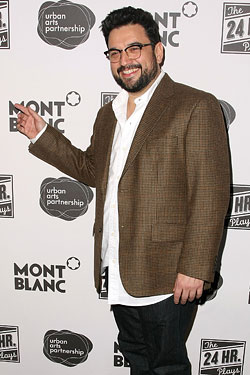Watching the generally tepid response of the White House to the protests and oppression in Iran has been frustrating. Apparently the House of Representatives agrees since they
passed a resolution 405 to 1 to support the protestors. I'm glad to see the President is finally making tentative steps toward
condemning the crackdown, but it seems like events dragged him along, and he'd rather not have committed.
Now perhaps there's something going on I don't know about--always possible in foreign affairs. Maybe in secret Obama and the State Department have been working with the Mullahs and are making progress, so they feel handcuffed. But it doesn't seem to be that way. President Obama seems to fear the U.S. will be seen as "meddling," and will be blamed by the theocracy and it will work against things. (He also seems like he'd just as soon put foreign affairs on hold and do what he really cares about which is changing domestic policy.)
Well, first, making a statement--even a general one---against oppression is meddling? When people are fighting in the streets? Apparently both parties in the House don't think so.
Second, we've been blamed anyway by the Mullahs for stirring up problems, along with Zionists and whoever else they regularly blame. As long as Iran isn't free, they'll blame us whenever it's convenient and there's not much we can do about it.
In fact, this is what troubles me most. It would seem that Obama isn't just worried that we'll be blamed, but honestly thinks we are blameworthy. He's certainly willing to apologize for America at the drop of a hat. It doesn't simply look like a strategem. He apparently figures we've got a lot to apologize for. (And he also thinks pointing out our own problems to even our most vicious enemies will help us get to them--the "you stone homosexuals to death, we don't allow them to be married, so we both could improve" sort of thing. But what happens when your target is not impressed by your own weakness, and, in fact, will only see it as an opportunity to demand you do more to prove you're sorry? Furthermore, this enemy already blames you for everything going wrong, even though you have at best limited control over them. After all, it's not always about America. In fact, it usually isn't about America.)
Finally, the whole thing is odd. It seems almost as if Obama, following his promises as a candidate, insists on being "different" (and especially "different from Bush"). Here's the guy who was gonna talk to people, no matter what. They could do anything, be as repressive as they want--he wouldn't let any preconditions get in the way of dialogue. What this means is our enemies can feel comfortable, since they know Obama will always reach out. The way it works, the only countries Obama seems to make serious demands on are our allies.
Think about it. No matter what happened in the Iranian election, no matter what the real vote was (it's a joke anyway since only pre-approved candidates can run), Obama appeared afraid to say too much, because he'd rather let things settle, and (I'm guessing) expects the mullahs will eventually take over and we'll end up with Ahmadinejad still in charge. I don't deny the side with the guns usually wins, but what will this caution get us? It ends up meaning we won't overly criticize their oppressive ways so when we meet with them again, we can criticize their oppressive ways.
You can talk to enemies and still criticize them in general. They might actually listen to you more if you do it that way.
Instead we've had all this happy talk about their rigged election beforehand, and afterward (in a series of differing responses) even what sounded like excuses about how there's not that much difference between Ahmadinejad and Mousavi. (Allegedly some of the dissidents are quite unhappy with this statement, since they're putting their lives on the line based on this difference.) Hey, we get Mousavi is far from perfect, and that the Iranian citizens agitating for freedom have lots of differences with us. That's how it goes. The point is one side clearly wants greater freedom, and the other wishes to extinguish it. If we can't take a simple stand on this, does that mean we'll stand for anything? Is stability (assuming we can get it) so important in our foreign policy now that it trumps supporting democracy and human rights?
By the way, whatever happened to all those people who said Ahmadinejad is just a figurehead? If he were, why does it seem so important for the mullahs that he remain in power?























